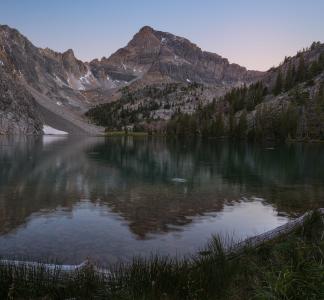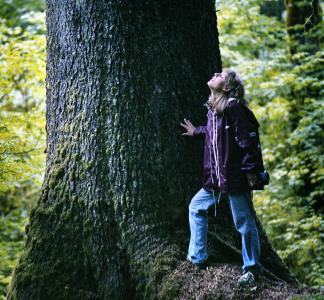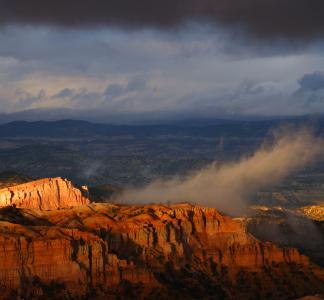Don't be fooled by Trump admin's national park shutdown ploy

Arches National Park, UT.
Neal Herbert, NPS.
Congress' failure to pass a federal spending bill affects parks
Interior Secretary Ryan Zinke wants to keep national parks open during the government shutdown—a wily political move that will leave lands unsupervised while failing to address a deep, underlying funding crisis.
Congress failed to pass a federal spending bill before the deadline on Jan. 20, triggering a "government shutdown" for the first time since 2013. This means many staffers will be on furlough or indefinite leave, with some federally administered services, including "head start" education programs, likely on pause.
Interior Secretary Ryan Zinke has a vague plan to keep parks open, but without rangers to supervise them. How does this work, exactly? Nobody knows.
Surprisingly, national parks are expected to stay open. Perhaps fearing yet another public relations black eye if social media were flooded with photos of forlorn kids locked out of scenic vistas, Interior Secretary Ryan Zinke has instituted a vague plan to keep access to some lands, but without park rangers to supervise them.
How does this work, exactly? Nobody knows. Interior says it “will still allow limited access wherever possible.” Beyond that, the only safe conclusion is that there will be fewer law enforcement officers and other staff available to keep visitors safe and police against vandalism.
Keeping parks open an act of subterfuge
On the surface, keeping public lands open is a good thing—and the Trump administration is hoping few Americans will examine the decision at a deeper level.
But Zinke is not fooling anyone. His moves to jack up park entrance fees--increasing the cost of a visit by up to 180 percent for a carload of people—and cut back on free-entry days are still fresh in our minds. These have been explained as measures to defray the National Park Service's $12 billion deferred maintenance backlog, but the fee increases would take about 173 years to pay that off.
Combined with an ongoing refusal to address the budgetary starvation diet the president and Congress have imposed on public lands and the agencies that care for them, these actions show the shutdown maneuver for what it is: a sleight-of-hand trick. While Trump and Zinke are tearing down bedrock conservation practices and nickel-and-diming vacationing families, they want us to keep our eyes on the nice, shiny "open" sign at the gates of Yellowstone National Park.
Shutdowns disrupt public lands—but shine light on value of conservation
Government shutdowns typically leave most national parks, wildlife refuges, forests and monuments closed to the public. During the last shutdown, in 2013, many would-be visitors were turned away at the gates and a range of public lands upkeep tasks were suspended, from endangered species enforcement to safety inspection at drilling sites.
That 16-day disruption was devastating to recreation communities and federal employees, not to mention frustrating to would-be tourists. One hiking couple went missing for five days at a state park in Texas and nearly died after the government shutdown closed the only route they were familiar with on federal lands. Communities near national parks alone—not accounting for wildlife refuges and other types of public lands--were estimated to have lost $76 million in tourism spending for each day of the shutdown.
Americans noticed the harmful effects of the 2013 shutdown, and most of them emerged from the episode wanting stronger protection for national parks and public lands, not more budget cuts, according to polling conducted shortly thereafter. Nearly three-quarters of respondents said lawmakers should not further cut federal spending on national parks and public lands, which jibes with longstanding and bipartisan pro-public lands views across the country, as well as the incredible on-the-ground popularity of national parks and other sites.
The Trump administration and its congressional collaborators consistently ignore that the American people love public lands and want to see them protected rather than degraded, and pursue policy in kind. Zinke's "shutdown" stunt can't distract from that damning record.



